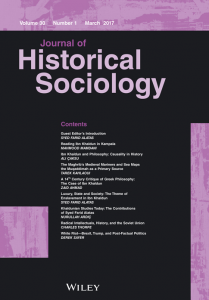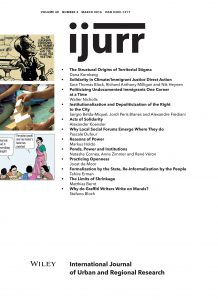"Pretty" enough to run for office?
 A recent psychology study (see below) at Northwestern University reveals that one reason that we look for female political candidates to be “attractive” is due to human instincts for “mate selection.” The authors of the study assert that these judgements about the attractiveness of a female candidate occur unconsciously, therefore insinuating that a) mate selection is transhistorical and is based on modern standards of attraction, b) mate selection is heteronormatively essentialized and c) male preferences and instincts are human instincts, which is why women would also hold female candidates to the same mate selection standards. Michel Foucault’s work on discourse, power, and desire provides a context in which we can understand the dominant hegemonic suppressions at work in these kinds of assumptions. Patriarchy as power operates at a level that does not feel repressive, rather, it creates the discourse that masks the inflection of this power, thereby operating “unconsciously.” By this logic, go ahead and vote for Sarah Palin because she is ‘pretty,’ after all, its only natural that we prefer to look at her, it’s just our human instinct for mate selection kicking in, unconsciously of course.
A recent psychology study (see below) at Northwestern University reveals that one reason that we look for female political candidates to be “attractive” is due to human instincts for “mate selection.” The authors of the study assert that these judgements about the attractiveness of a female candidate occur unconsciously, therefore insinuating that a) mate selection is transhistorical and is based on modern standards of attraction, b) mate selection is heteronormatively essentialized and c) male preferences and instincts are human instincts, which is why women would also hold female candidates to the same mate selection standards. Michel Foucault’s work on discourse, power, and desire provides a context in which we can understand the dominant hegemonic suppressions at work in these kinds of assumptions. Patriarchy as power operates at a level that does not feel repressive, rather, it creates the discourse that masks the inflection of this power, thereby operating “unconsciously.” By this logic, go ahead and vote for Sarah Palin because she is ‘pretty,’ after all, its only natural that we prefer to look at her, it’s just our human instinct for mate selection kicking in, unconsciously of course.




1754-9469/asset/society_affiliation_image.gif?v=1&s=9197a1a6ba8c381665ecbf311eae8aca348fe8aa)

First, an author of the study asserts that there is not a direct relation between these “unconscious” motives and predicting voting behavior, which is highly problematic for this line of argument. Second, it is untenable that mate selection can be both transhitorical AND based upon “modern standards of behavior.” Generally, evolutionary sociobiologists argue these preferences are relatively stable over time not both. Third, and perhaps most importantly, this study fails to explain why women are MORE critical of female candidates in actual voting behavior as has been evidenced in polling and post-election voting behavior for more than 20 years now throughout Western democracies. If an instinct is a universal characteristic shared by an entire species, then why is their gender variance in voting behavior? One would expect women to be as critical as men, but they are more. Our goal is this endeavor should be to inform a general audience not mislead them with poorly designed and articulated studies.
What a curious article, although you make a good point about the Foucauldian contextualization of these sorts of ideas. Whether this biological determinism of choosing the “pretty” candidate is true or not, what always gets me is that people can’t look past their subjective response. Of course, that’s a far larger problem. I guess that’s just being human…
Yes, this is exactly the issue I was hoping to point out. Though the author(s) indicate that there is not a direct correlation between these unconscious choices and voting behavior, they lead the reader to believe that a strong connection is there which is highly problematic. Also, it may be that I was not clearly articulating that I believe that the article is both arguing for a human instinct that is by definition transhistorical while simultaneously invoking more modern understandings of beauty. By this I mean that the standards that define Palin as “pretty” today do not necessarily hold for other historical contexts. This paradox is deeply disturbing. And finally, the problem of the ‘universal characteristic’ that does not look at gender variance is the collapse or interchangeability of universal with male; something we see quite often. This issue is often addressed by feminist human rights scholars such as Charlotte Bunch who claim that the “human” in human rights is generally abstracted male. And I completely agree, this study is poorly designed and poorly articulated!